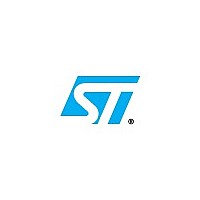STM32L162QD STMicroelectronics, STM32L162QD Datasheet - Page 14

STM32L162QD
Manufacturer Part Number
STM32L162QD
Description
Ultra-low-power ARM Cortex-M3 MCU with 384 Kbytes Flash, 32 MHz CPU, LCD, USB, 3xOp-amp, AES
Manufacturer
STMicroelectronics
Datasheet
1.STM32L162QD.pdf
(124 pages)
Specifications of STM32L162QD
Operating Power Supply Range
1.65 V to 3.6 V (without BOR) or 1.8 V to 3.6 V
7 Modes
Sleep, Low-power run (11 μA at 32 kHz), Low-power sleep (4.4 μA), Stop with RTC, Stop (650 nA), Standby with RTC, Standby (300 nA)
Ultralow Leakage Per I/o
50 nA max
Fast Wakeup Time From Stop
8 μs
Core
ARM 32-bit Cortex™-M3 CPU
Dma
12-channel DMA controller
11 Timers
one 32-bit and six 16-bit general-purpose timers, two 16-bit basic timers, two watchdog timers (independent and window)
Available stocks
Company
Part Number
Manufacturer
Quantity
Price
Company:
Part Number:
STM32L162QDH6
Manufacturer:
STMicroelectronics
Quantity:
10 000
Functional overview
Note:
3.2
14/124
●
●
●
The RTC, the IWDG, and the corresponding clock sources are not stopped automatically by
entering Stop or Standby mode.
ARM
The ARM Cortex™-M3 processor is the industry leading processor for embedded systems.
It has been developed to provide a low-cost platform that meets the needs of MCU
implementation, with a reduced pin count and low-power consumption, while delivering
outstanding computational performance and an advanced system response to interrupts.
The ARM Cortex™-M3 32-bit RISC processor features exceptional code-efficiency,
delivering the high-performance expected from an ARM core in the memory size usually
associated with 8- and 16-bit devices.
The memory protection unit (MPU) improves system reliability by defining the memory
attributes (such as read/write access permissions) for different memory regions. It provides
up to eight different regions and an optional predefined background region.
Owing to its embedded ARM core, the STM32L162xD is compatible with all ARM tools and
software.
Stop mode without RTC
Stop mode achieves the lowest power consumption while retaining the RAM and
register contents. All clocks are stopped, the PLL, MSI RC, HSI and LSI RC, LSE and
HSE crystal oscillators are disabled. The voltage regulator is in the low power mode.
The device can be woken up from Stop mode by any of the EXTI line, in 8 µs. The EXTI
line source can be one of the 16 external lines. It can be the PVD output, the
Comparator 1 event or Comparator 2 event (if internal reference voltage is on). It can
also be wakened by the USB wakeup.
Standby mode with RTC
Standby mode is used to achieve the lowest power consumption and real time clock.
The internal voltage regulator is switched off so that the entire V
powered off. The PLL, MSI RC, HSI RC and HSE crystal oscillators are also switched
off. The LSE or LSI is still running. After entering Standby mode, the RAM and register
contents are lost except for registers in the Standby circuitry (wakeup logic, IWDG,
RTC, LSI, LSE Crystal 32K osc, RCC_CSR).
The device exits Standby mode in 60 µs when an external reset (NRST pin), an IWDG
reset, a rising edge on one of the three WKUP pins, RTC alarm (Alarm A or Alarm B),
RTC tamper event, RTC timestamp event or RTC Wakeup event occurs.
Standby mode without RTC
Standby mode is used to achieve the lowest power consumption. The internal voltage
regulator is switched off so that the entire V
RC, HSI and LSI RC, HSE and LSE crystal oscillators are also switched off. After
entering Standby mode, the RAM and register contents are lost except for registers in
the Standby circuitry (wakeup logic, IWDG, RTC, LSI, LSE Crystal 32K osc,
RCC_CSR).
The device exits Standby mode in 60 µs when an external reset (NRST pin) or a rising
edge on one of the three WKUP pin occurs.
®
Cortex™-M3 core with MPU
STM32L162VD, STM32L162ZD, STM32L162QD, STM32L162RD
Doc ID 022268 Rev 2
CORE
domain is powered off. The PLL, MSI
CORE
domain is













